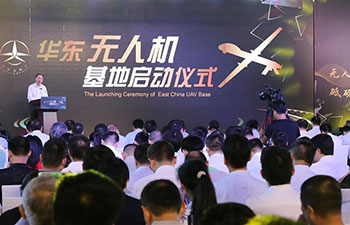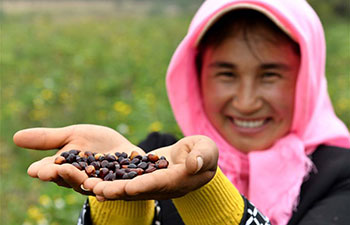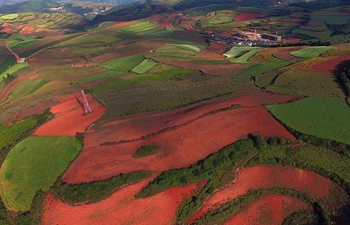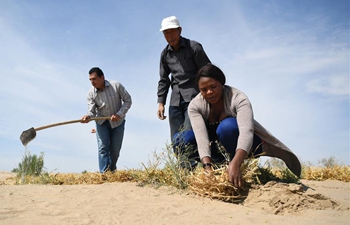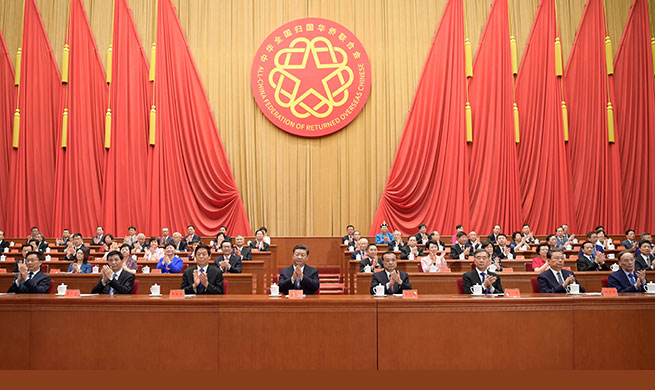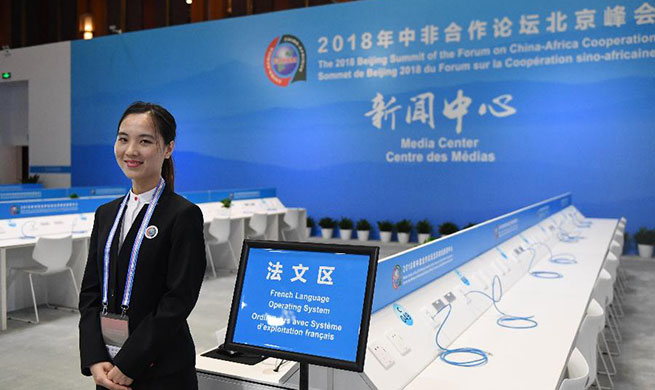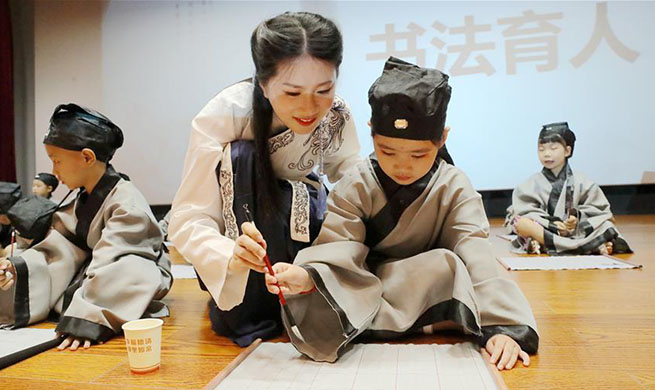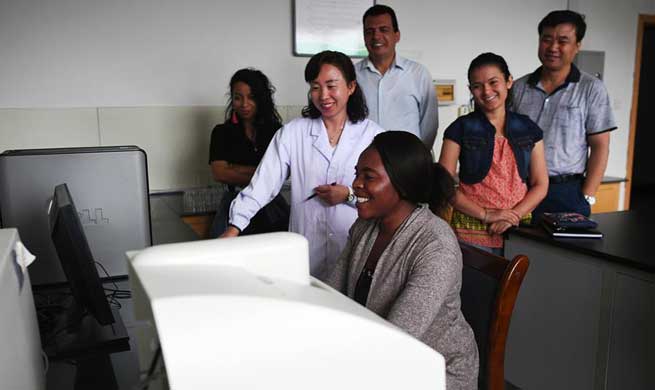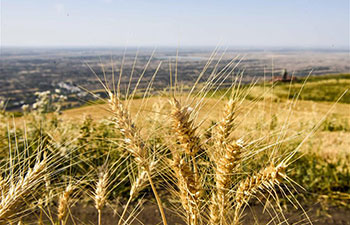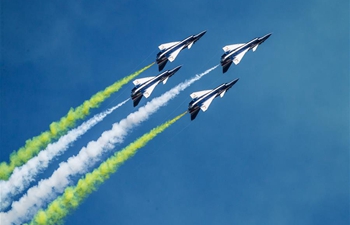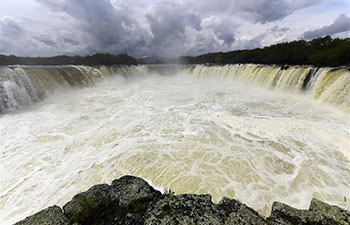ZHENGZHOU, Aug. 30 (Xinhua) -- Inside a greenhouse of the high-tech agricultural park in central China's Henan Province, tomato plants grow as high as three meters, but without any soil in sight.
In the Sino-Israel Agriculture High-tech Demonstration Park in Neixiang County, agricultural technician Bi Yunli keeps his nose to the grindstone and prunes the vines of the park's signature produce.
"The harvest of this high-end tomato breed is five to eight times that of a normal plant," said Bi. "The annual yield of about 0.067 hectares could reach 15,000 to 20,000 kilograms and almost all the produce is sold to supermarkets or wholesale merchants."
The unusually high yield is attributed to the particular tomato breed that was imported from Israel and advanced soilless system in which they are cultivated.
The plants grow in ground Sri Lankan coconut shells and are watered by a trickle irrigation system from Israel. On top of the ground shells, a plastic film is applied to prevent weeds from growing and it also redirects light to the tomatoes.
The tomato greenhouse is merely one part of the demonstration park that ensconces various types of greens.
Inside the greenhouse where the park uses a hydroponic system to grow lettuce, up to 100 foam boards with 15 plants neatly placed on each of them float in pools filled with nutrients.
"The entire system is totally organic," said Pang Bo, general manager of a local high-efficiency agricultural science development company, chewing a freshly picked piece of lettuce.
"The growing season is only 28 days and we can do this 365 days a year non-stop, which means a nutrient pool the size of about 0.033 hectares that grows lettuce will reap a profit of 200,000 yuan (about 30,000 U.S. dollars) per year."
According to the statistics issued by the Ministry of Agriculture and Rural Development of Israel, in 2014, one Israeli farmer was capable of growing enough food to feed 111 people.
Israel leads the world in agricultural technology, especially when it comes to agricultural development in the arid and semi-arid regions.
"Neixiang is an impoverished county," said Yang Shuguang, chief of the county government. "To shake off poverty and realize the goal of rural revitalization, it is crucial to score big in agriculture."
The trio of SOLI, an Israeli agri-tech company, Neixiang county government and Muyuan Group, a local food-processing and farming giant plan to invest 130 million yuan in building a high-tech agriculture industrial complex.
As of now, its 40 million yuan demonstration park is bustling with activity related to vegetable farming with the help of smart technology.
"Now, every part of the production process is smartly controlled," said Pang, who was demonstrating how he could monitor the status of every greenhouse inside the park simply with a click on his phone.
During the project implementation, Israeli experts were there to guide the Chinese staff through every step of the process while offering training to relevant personnel.
The park is set to broaden its own talent pool and has created more than 50 full-time jobs, with additional temporary jobs in the busy season.
"Our next step will be to deepen our partnership with SOLI to create a series of businesses that will help fulfill our vision of becoming a smart, integrated and outward-looking modern agricultural hub," said Pang.




